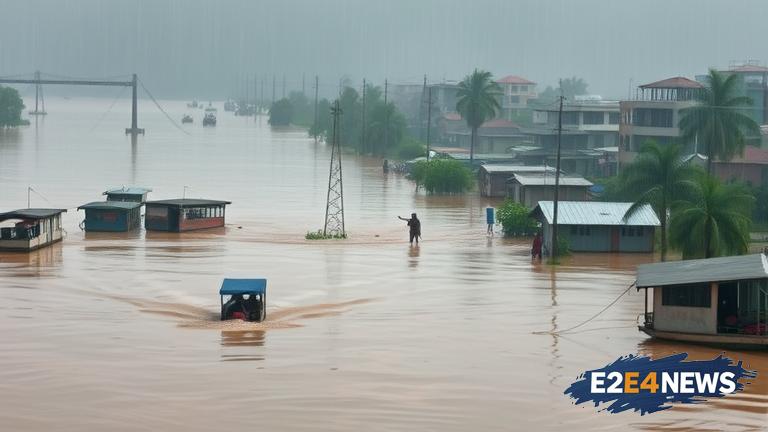Pakistan is currently experiencing one of the worst humanitarian crises in its history, with heavy rains and floods affecting over 30 million people across the country. The floods have caused widespread destruction, with thousands of homes, schools, and hospitals being destroyed or damaged. The government has declared a state of emergency and is working to provide aid to those affected. However, the scale of the disaster is so large that it is proving difficult to reach all those in need. The floods have also had a devastating impact on the country’s infrastructure, with roads, bridges, and communication networks being damaged or destroyed. The agricultural sector has also been severely affected, with crops being destroyed and livestock being killed. The economic impact of the floods is likely to be severe, with the government estimating that the damage could run into billions of dollars. The international community has begun to respond to the crisis, with several countries pledging aid and assistance. The United Nations has also launched an appeal for funding to help respond to the crisis. Despite the challenges, the people of Pakistan are showing remarkable resilience and determination in the face of this disaster. Many are working together to help those affected, with communities coming together to provide aid and support. The government is also working to provide aid, with the military being deployed to assist with relief efforts. However, more needs to be done to address the scale of the crisis. The floods have also raised concerns about the impact of climate change, with many experts warning that such disasters are likely to become more frequent in the future. The Pakistani government has pledged to do more to address the issue of climate change, but more needs to be done to reduce the country’s vulnerability to such disasters. The international community also needs to do more to support countries like Pakistan that are on the front line of the climate crisis. In the short term, the focus needs to be on providing aid and assistance to those affected by the floods. This includes providing food, shelter, and medical care to those in need. The government and international community also need to work together to provide support to those who have lost their homes and livelihoods. In the long term, the focus needs to be on building the country’s resilience to such disasters. This includes investing in infrastructure, such as flood defenses and early warning systems, as well as supporting communities to develop their own resilience and adaptability. The floods in Pakistan are a stark reminder of the need for urgent action to address the climate crisis. The international community needs to come together to support countries like Pakistan and to take action to reduce greenhouse gas emissions and prevent such disasters from occurring in the future. The people of Pakistan are in urgent need of aid and assistance, and it is the responsibility of the international community to respond to this crisis. The government of Pakistan is working to respond to the crisis, but more needs to be done to address the scale of the disaster. The floods are a major humanitarian crisis, and it is essential that the international community comes together to provide aid and assistance to those affected. The crisis is not just a national issue, but a global one, and it requires a global response. The United Nations and other international organizations have a critical role to play in responding to the crisis and providing support to those affected. The floods in Pakistan are a wake-up call for the international community to take action to address the climate crisis and to support countries that are vulnerable to such disasters.
